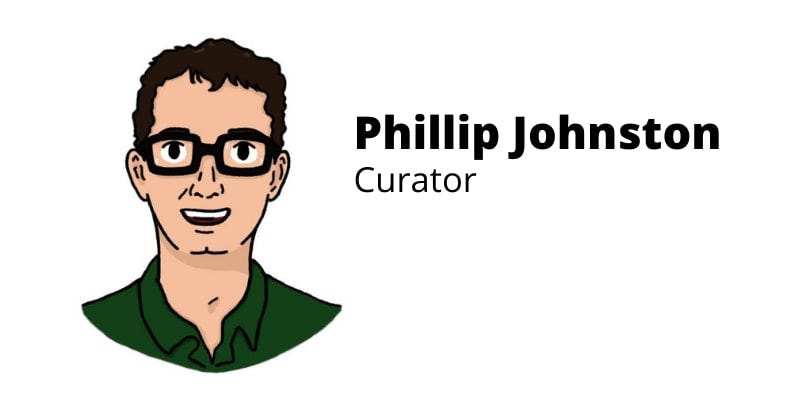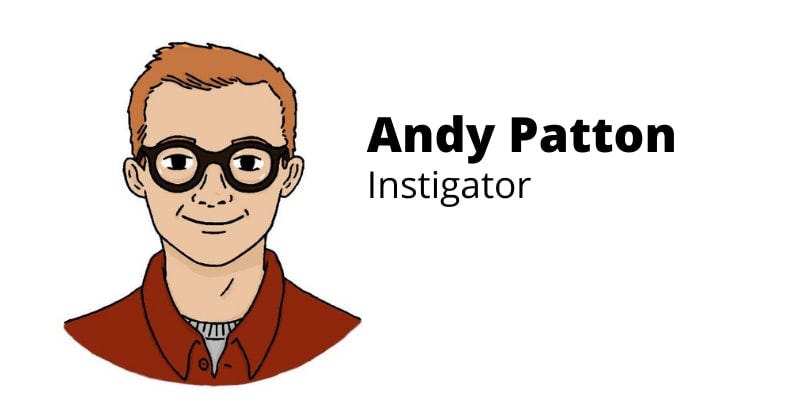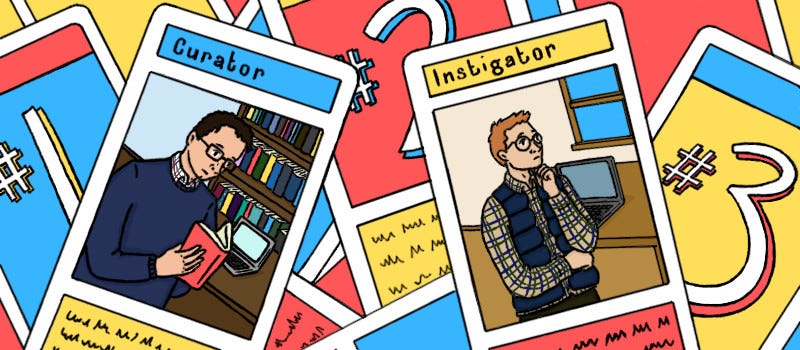After Roe, Curbing Culture Wars, and Hope at the End of the World
Living in hope, compartmentalizing, and asking the right questions about Dobbs.
Living at the End of the World
Peter Leithart on radical hope
Thus far, the world hasn’t ended. But over the course of history, multiple worlds have come to an end: the Roman empire, the medieval order, the dream of “Europe whole and free” — to name just a few.
Here in 2022, we are definitely living through an end, but exactly what world is coming to a close? In short, a world controlled by the power and values of Western Europe and North America, writes Peter Leithart.
The end of this world mirrors the end of other worlds, lining up with a “recurring historical phenomenon” of expanding globalization that inevitably contracts via pandemic, pestilence and population decline. Leithart writes,
Over the two millennia since the birth of Christianity, many worlds have ended, just as our world may be ending now. At such times, it is the task of Christians to nourish hope within societies whose transient hopes have withered. Churches must become communities that cultivate radical hope.
Read the whole thing for a brilliant reflection on this recurring cycle and the unchanging Christian calling within it. It’s an excerpt from Leithart’s new book, God of Hope, and part of the latest issue of Plough Quarterly: Hope in Apocalypse.
How to Curb the Culture War
Yuval Levin on learning to compartmentalize
A culture war has been raging in America for decades, but the current stage sees conflict invading every sphere of life in “a mix of entertainment and politics that combines the worst of both,” writes constitutional scholar Yuval Levin. He likens the ethos of our moments to “a monstrous creature born of an unholy fusion—it’s not just out of its proper context, it is a wicked blend of attitudes that has no proper context.”
How do we resist this two-headed monster birthed in the fusion of politics and entertainment? With a clearer perception of life’s different spheres. We need to learn to compartmentalize, Levin writes.
This doesn’t mean that we abandon a morally integrated life. Rather, we recognise the places where “partisan allegiance and factional solidarity” have no place. We need to remember that our society is “unified along many axes,” not just one:
People who disagree about abortion might nonetheless share a love of nature or of the New York Mets, or a devotion to the nursing profession, or a deep religious faith. If we let our society evolve in the direction of a single, all-encompassing cultural conflict, such people could find no way to overcome what keeps them apart, and would be left always approaching one another with suspicion. But if we come to see some separate spheres of life as distinct yet overlapping domains of human action, we can hope to better reflect the constructive complexity of our gloriously diverse free society, and so to build out spaces for common efforts, common enjoyments, and common loves despite our differences.
Read How to Curb the Culture War over at Comment. For more from Yuval Levin, listen to a recent-ish interview with Bari Weiss where he outlines the argument of his recent book, A Time to Build.
After Roe v. Wade
Alan Jacobs on how to think about the Dobbs decision
In our broken cultural discourse (see above), important questions that should be addressed individually get lost in the shrieking din of partisan rancor. The Dobbs decision that overturned Roe v. Wade at the end of June is case in point.
It is hard to think clearly about the end of Roe, so why not consult the professor who literally wrote the book on how to think? Alan Jacobs helps us keep five questions distinct:
1) All those decades ago, was Roe v. Wade rightly decided? I agree with Akhil Reed Amar — a pro-choice professor at Yale Law School — that it was not. [3T: Listen to a podcast interview here.] Strictly in terms of legal reasoning, it was a remarkably bad decision.
2) Should the current SCOTUS have overturned it? That’s actually a tougher question, because of a general sense that the longer a decision has stood the more powerful the voice of stare decisis becomes. It would have been far less socially disruptive if Roe had been overturned in the Reagan years. But it is so indefensible a ruling that I can’t justify keeping it on the books.
3) Was it overturned on proper grounds? Legal scholars will be debating that for a long time, but for what it’s worth, Alito’s opinion does not strike me as an especially cogent one. It’s better-argued than Roe was, but that’s an exceptionally low bar.
4) This is not something widely discussed, especially right now, but: Has it been wise for the pro-life movement to focus so much of their energies, for the past half-century, on the overturning of Roe? I think not, and I have always thought not. I believe that it would have been a better strategy to focus on non-legal means of reducing or eliminating abortion. The end of Roe, after all, does not mean the end of abortion in America, and may make things harder for the pro-life movement in pro-abortion states. (Related: I don’t know if Elizabeth Bruenig would still endorse what she wrote several years ago about being genuinely pro-life, but I still endorse it. See also my old manifesto on The Gospel of Life.)
5) Finally: Is abortion a good or an evil? Note how distinct this core question is from the legal disputes: Roe could have been wrongly decided as a matter of Constitutional law even if abortion is salutary and necessary; Roe could have been rightly decided even if abortion is a great evil. One of the more frustrating elements of this particular battle in the culture war is the difficulty most people have in distinguishing “This is an outcome I like [or hate]” from “This is a good [or bad] decision.” (Indeed, the inability of the Justices to make this distinction in 1973 is precisely why the legal reasoning in Roe is so inept.) All that said: on this most essential matter, I agree with Ross Douthat.
Be sure to chase up some of those links. For more thoughtful perspectives on the current state of the abortion debate, read Charles Camosy on making both sides uncomfortable or Leah Libresco Sargent on not pitting mothers against babies.
Phillip and family are back in the USA for a few weeks for another family visit roadtrip. Somehow, they’ve ended up with an abundance of Starbucks giftcards, making it difficult to block out the siren song of the Salted Caramel Cream Cold Brew.
Reading: After listening to a very engaging interview, Phillip picked up James Hamilton’s two-volume commentary on the Psalms. Hamilton connects the psalter to the whole of Scripture in ways he never thought possible, grounded in a reading of Psalms 1-2 that sees Deuteronomy 6 and 17 as key to the whole book. He’s also reading Martin Luther on the Magnificat, which packs quite the punch.
Listening: Perhaps you’d like to turn up the volume and sit for three minutes in the shade of Nina Simone’s “July Tree”? Max Richter has also re-recomposed Vivaldi with The New Four Seasons. It’s simpler this time, less cluttered, and with period instruments. To quote Richter,
The instruments and the bows are lighter, the strings – made of gut rather than steel – are more responsive, so there is more intimate human connection. They might make a smaller sound but within that sound there is greater light and shade. You can hear it particularly in the extremes; in the very slow, tender music you get a very direct feeling of the individual players, and in the very fast, intense, dynamic music you feel the orchestra is about to blow up.
Bliss.
Andy has landed in Oxford this week for Hutchmoot (UK edition), the Rabbit Room’s annual conference on art, faith, and all things Rabbit Roomish. If you do not have the fortune of attending, you can still listen to Andy’s on “What Makes a Christian Game?” here.
Reading: After Phillip told Andy to pick up James Hamilton’s two-volume commentary on the Psalms (as noted above), he did so. And it is so good that it is worth mentioning twice. Hamilton adds his own translations of each of the psalms which highlight the interconnections between the book of Psalms and the rest of the Bible. It is biblical theology at its finest.
Listening: Tim Keller’s interview on The Rise and Fall of Mars Hill was a very good reflection on celebrity, ministry “success,” and how to stay sane and humble in the midst of accolades.












